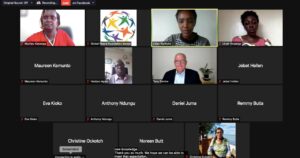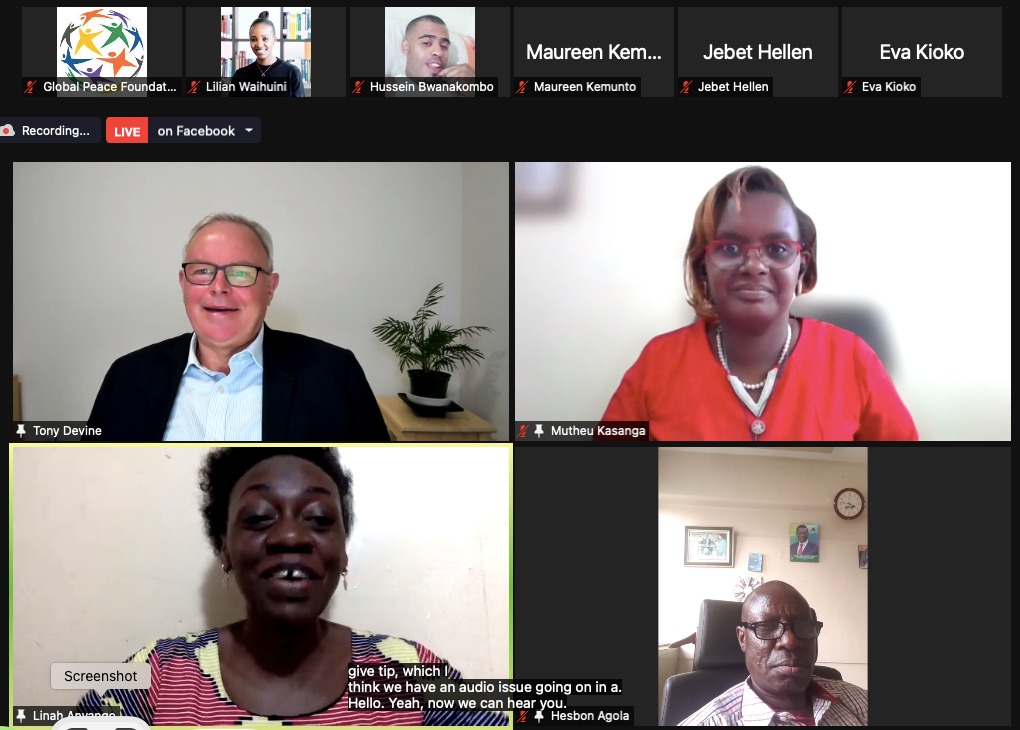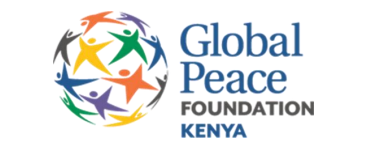The position, mandate, focus, training and determination of a teacher is at the center of achieving quality education across the globe. The success of a school or any learning institution is equivalent to knowledge, skills and experience of the teachers executing the learning process.
Good teachers produce good marks or grades and deliver content that make learners an-all-round person and ready to conquer the world challenges and fit in the contemporary society. That is why during this year’s World Teachers’ Day under the theme; “Teachers at the Heart of Education Recovery,” GPF-Kenya organized a Zoom discussion with education stakeholders representing different spheres to critically analyze, recommend and identify the current position of a teacher in facilitating learning process.
The one- hour session which was moderated by Dr. Tony Devine, Vice President, Education, Global Peace Foundation, focused on the future of learning in schools beyond Covid-19 pandemic challenges, lessons learnt and how teachers can adjust to be able to cope with the increasing technological advancements. This also redefined the teacher-student-parent work relationship for a smooth knowledge acquisition and how this can be achieved remotely.

Addressing the participants, Ms. Linah Anyango, Biology and Chemistry Teacher, Regis School-Runda, pointed at the unique problems they faced in promoting online learning during the pandemic. “Teachers started from nothing when the pandemic struck and had to learn fast and teach remotely, which was truly a challenge.”
She however acknowledges the unequal working environments in private and public schools which has advantaged some students while sidelining others based on the infrastructural development of the institutions.
On his part, Mr. Hesbon Otieno, Deputy Secretary General, Kenya National Union of Teachers rallied for empowerment of teachers through regular trainings and updates of new modern technologies. He also called for the government to fully support education system equally and effectively in order to achieve desired outcomes.

“The government of Kenya supports free primary and secondary education, as basic foundation of learning.” He added that this alone may not be enough, stressing on the need to bring more stakeholders on board, especially for public schools.
When given opportunity to give her views on the subject matter, Ms. Mutheu Kasanga, Chairperson, Kenya Private Schools Association elaborated on modern teaching skills that teachers can employ for effective delivery. She explained that most schools, more so private ones, were quick to explore online learning and keep their students on course during the hardest part of the pandemic.
In summary, Dr. Tony Devine appreciated the panelists for such as in-depth discussion on the role of teachers as learning facilitators. He agreed that indeed there is still much to be done to achieve a blended learning process, promoting both face-to-face and online learning.
